The recent Building Transformations summit brought together experts in mass timber and industry automation to discuss design and construction in the digital environment, including Design for Manufacturing and Assembly (DFMA).
Timber in the Digital Environment: Spotlight on Industry Summit on Timber took place October 12-13, 2022, at the Vancouver Convention Centre.
The two-day event comprised site tours of two local mass timber buildings, two keynote addresses, and presentations and panel discussions.
For details, go to https://www.buildingtransformations.org/events/timber22
Building Transformations director and mistress of ceremonies Helen Goodland, principal of Scius Advisory Inc., says the event was a great success.
“We had 20 speakers from Canada, the U.S. and Europe, plus16 tech exhibitors,” said Goodland. “The room was full, about 120 people, and another 120 took part online.”
Some of the speakers and presentation moderators are with companies that work in or with robotics.
“We’re still early in the evolution of digitization and automation,” said Craig Mitchell, principal of BlackBox Offsite Solutions and chairman of Vancouver Regional Construction Association (VRCA).
Mitchell moderated a panel discussion called Transforming Construction – What’s New in Timber Fabrication Systems.
“In modular systems and panel systems, robotics and automated wall lines are beginning to take the place of framing tables and people,” he said. “This is beginning to replace framing and sheathing stations with greater accuracy and less worker injury.”
Production backlog is critical to the success of these factories, which must invest big bucks in automated systems.
“Without a pipeline of projects, the overhead of inactivity has killed many factories during downturns,” said Mitchell. “We will begin to see more automation in panel systems as code changes force companies to look at more efficient ways of building high performance wall systems.
“High-performance building panels are more easily built off-site rather than on-site by framing crews.”
Mitchell says that while some companies today have a digital strategy, many other businesses still do not.
“Three-quarters of VRCA members are companies with less than 20 employees and few of them are thinking about digitization,” he said. “They don’t have digital strategies because they’re not yet being forced to change. So, we have quite a bit of disparity in the industry. The big guys see change is coming and they’re addressing it, while the small companies lag behind.”
Mitchell says the B.C. mass timber sector needs to catch up and recognize there is a robotics and automation knowledge brain drain taking place.
“The growth of the U.S. market and the entrepreneurial spirit down there of trying prefabrication and automation is beginning to attract expertise in mass timber and robotics away from British Columbia,” he said.
B.C. has a healthy mass timber and prefab knowledge base, but it’s still relatively young.
“Since the recent change in the US building codes that allow tall timber buildings, our technical people have been moving down to opportunities there,” said Mitchell. “There are more mass timber projects there and they are also larger.”
Joe Geluch, president of Naikoon Contracting Ltd., delivered a presentation called The Builders Perspective – Leveraging Virtual Construction for Complex, Passive House, Prefab Mass Timber Structures.
“Robotics will bring big changes to construction in how we manage projects and the types of jobs that will have to be performed and the people needed to fill those jobs,” said Geluch.
More technical experts are needed in B.C. and Canada, he says.
“In the near future there will be more technical positions to be filled that will need training and demonstrated competence in the computational sciences,” said Geluch. “We have a long way to go in construction to implement robotics, but we’re making progress, little by little.”
Timber in the Digital Environment was one of the live and virtual events that Building Transformations puts on every year.
The organization used to focus on building information modelling (BIM) and was called CanBIM (Canada BIM Council) but changed its name early in 2022.
“We changed the name to reflect the fact that technology in construction is moving quickly in different directions and that our members are not doing only BIM anymore,” said Building Transformations president and CEO Tom Strong.


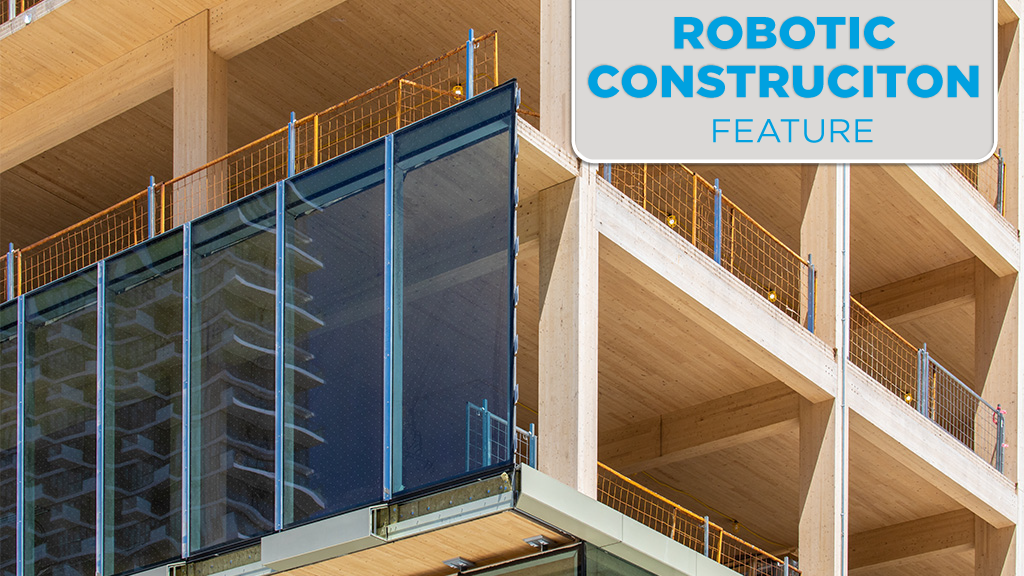

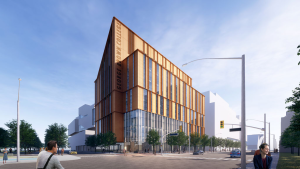


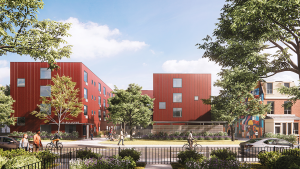

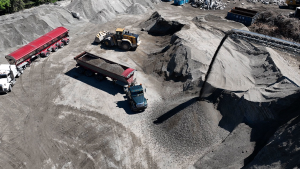
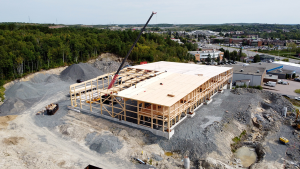
Recent Comments